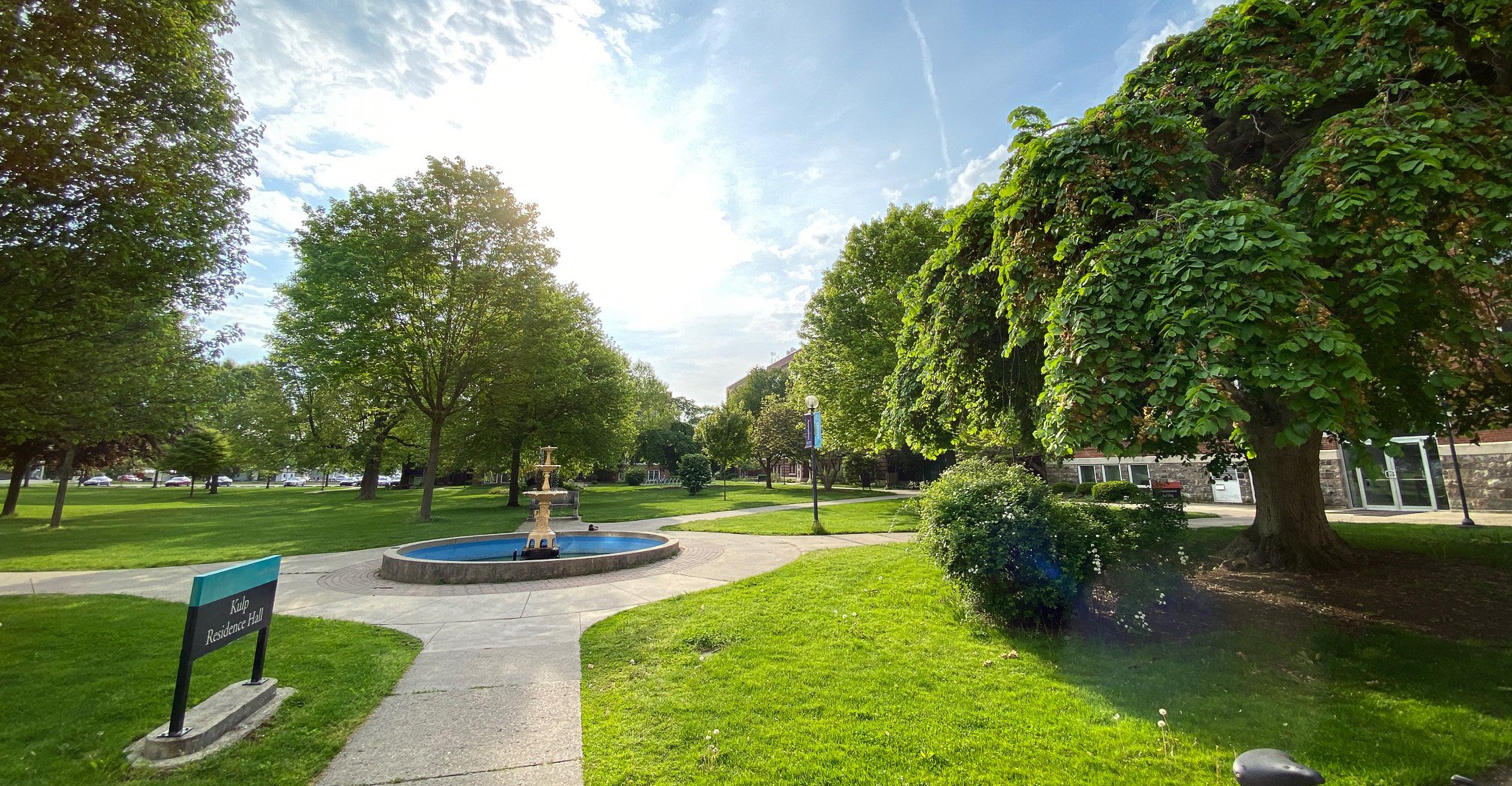Establishing a charitable remainder trust

For many, the topic of financial planning, and more specifically the mere thought of estate
planning, conjures feelings of anxiety and stress. But planning well for your family’s future while also preserving charitable giving priorities does not have to be complicated, nor do they need to be competing issues. There are, in fact, some relatively simple giving vehicles that can help accomplish both objectives. To determine whether these solutions may be right for you, consider the following checklist:
- Do you find yourself with highly appreciated assets like stock or real estate?
- Do you have a desire for more income over the course of your lifetime?
- Do you have a desire for more income over the course of your lifetime?
- Do you have a desire to help one or more charities that hold special meaning to you?
- Would you give more money to charity if:
- You could get a tax deduction for simply pledging assets to your favorite charity after you die?
- You could receive an annuity income steam from the assets that you pledge to your favorite charity?
- You could pledge and sell appreciated assets without immediately paying taxes, and then reinvest the proceeds to produce a larger or more stable income stream?
If you said yes to any of the questions above, you may wish to consider using your appreciated assets, like stock or real estate, to establish a charitable remainder trust. In the right circumstances, this instrument can increase income, reduce taxes, unlock appreciated investments, eliminate investment worries, and ultimately provide very important charitable support.
What is a Trust?
A trust is a legal entity established by an individual to set aside specific assets to be used for specified purposes over time. The trust can be managed by the donor or by a third party, such as an individual, a bank or other trust department, such as Everence Trust which is used by many of our donors. There are a variety of trust arrangements. One of them is the charitable remainder trust.
Charitable remainder trusts are designed to enable a person to continue receiving the earnings from his or her assets for life, without management worries, while also making a significant gift to Goshen College.
When you create a charitable remainder trust, you will transfer money, securities or other assets to an irrevocable trust. This removes the asset(s) from your estate and therefore, if structured correctly, no estate taxes will be due on it when you die. You will also receive an immediate charitable income tax deduction.
Through the trust, the donated asset(s) is transferred to a trustee. As the donor, you could serve as trustee, especially if the trust is funded with cash and/or marketable securities. If any donated asset will be “hard-to-value” (i.e., real estate, nonmarketable business interests, things which are not cash nor marketable securities), additional provisions regarding an independent valuation of these assets (conducted by someone other than you) must be added to the trust documentation. If hard-to-value assets are to be included, an independent trustee might be most advantageous. An independent trustee could be an individual, bank, trust company, community or church related foundation, or charitable organization. The trustee then sells your asset(s) at full market value, paying no capital gains tax, and re-invests the proceeds in income-producing assets.
For the rest of your life, or a period of pre-determined years, the trust will pay you an income. If desired, the trust also can pay income to your spouse. At your death, or the death of the surviving beneficiary, the remaining principal in the trust goes to one or more charities. That’s why it’s called a charitable remainder trust.
The trust can be designed to fit your unique needs:
- You decide how much to place into the trust.
- You determine the income you would like to receive from the donated assets. The selected rate of income return must be at least 5 percent. Usually, the rate selected is 5 percent to 7 percent. The best rate will depend upon the number of beneficiaries selected and their ages.
- You decide whether an annuity trust or unitrust will work best.
Choosing a charitable remainder trust depends on your personal needs. We at Goshen College can help you and your professional advisors decide which of the options below might work best for you.
Which is Better: Annuity Trust or Unitrust?
1. Annuity trust: This type of trust pays a fixed dollar amount each year, which works well if you are seeking a reliable income. The annuity trust may be advantageous if you want to be certain of the dollars received year-to-year. If you are concerned about the possibility of recessionary times and falling market values, the annuity trust may have greater appeal. Although you cannot add to this annuity trust later to increase income, you can create a new trust for that purpose.
2. Standard unitrust: A unitrust will pay you a variable amount equal to a stated percentage of the net fair market value of the trust assets as recalculated yearly. Variations on the standard unitrust exist that allow you to have more control over the income distribution.
A unitrust may be a hedge against inflation. If you foresee economic growth resulting in appreciation of the trust’s assets, a unitrust is the best option. The valuation can rise or fall, but over time a well-managed unitrust may offer better protection of purchasing power than fixed dollar payments. A further advantage is that if you want to enlarge the trust later, you can make additional contributions without the cost of creating and administering more than one trust.
There is also a variation on the standard unitrust that pays the lesser of the trust’s earned income or the stated percentage payout each year. We can explain this option – if you are interested, feel free to contact us.

Significant Tax Benefits
Now consider the major and wide-ranging tax savings realized by the creation of a charitable remainder trust. First, when the trust is funded, you immediately obtain the benefit of a sizable income tax charitable deduction. This is equal to the present value of the remainder interest ultimately payable to Goshen College and is based on Internal Revenue Service life expectancy tables and current interest rates. The older the beneficiary, and the lower the income payout (minimum of 5% is required), the greater the charitable deduction.
Highly appreciated assets that generate low current income are an ideal funding medium. While you may be reluctant to sell such assets directly because of the tax you would pay on the gain, you can transfer them to the trust without incurring the capital gains tax. The trust can sell the assets without incurring any tax and then reinvest the proceeds to secure a higher current income yield (provided that there is absolutely no prearrangement of any such sale).
Perhaps over the years your personal investments have grown handsomely, but you realize that the yield is inadequate. Unfortunately, if you sell and reinvest in higher-yielding securities, you will lose part of any such gains to taxes.
The alternative? Transfer the appreciated securities to a charitable remainder trust. In return for the gift, you might receive income two-to-four times greater than the current dividend from the typical growth stock.
Example:
Sylvia, age 72, owns several stocks with a market value of $200,000, but they pay dividends of only $4,000 a year, or 2 percent of market value. She decides to transfer these securities to a charitable remainder annuity trust that will pay her $10,000 a year, increasing her gross income by $6,000. Moreover, Sylvia will receive an income tax deduction equal to about one-half of her $200,000 contribution to the trust.
If Sylvia had sold the stocks instead, she would pay a large tax on her capital gain. Their cost basis is $40,000, compared to the current market value of $200,000, resulting in a gain of $160,000. At a federal capital gains tax rate of 15 percent, the federal tax would be $24,000, and there could also be state taxes. This would leave her with, at most, $176,000 to reinvest, so she would have to find stocks that pay dividends of at least 5.69 percent to receive the same $10,000 her trust can pay her.
In addition to immediate tax savings, there are other reasons Sylvia felt the creation of a trust made sense. First, she was relieved of asset management worries. Sylvia no longer had the day-to-day concerns of investing for needed income. Also, she freed herself of similar concerns in the future when ill health or other factors may complicate estate management. Second, there were significant estate tax advantages. The charitable gift made through her charitable remainder trust will not be taxed in Sylvia’s estate at death.
IRAs and Charitable Remainder Trusts
If you have a significant IRA, consider naming a charitable remainder trust as the beneficiary of all or part of the IRA. A new law requires most non-spouse beneficiaries to withdraw all assets from an inherited IRA or 401(k) plan within 10 years after the death of the account holder. If you are a child, sibling, or even close friend of the IRA owner, it is important to understand the rules that govern IRA inheritance and whether a charitable remainder trust could be very advantageous in your situation.
In Conclusion
If you are considering the establishment of a charitable remainder trust to benefit your family and a charity, you should consult an attorney or other professional advisor experienced in estate planning and tax law. Many of our donors seek assistance from the professionals at Everence Trust/Foundation. Such professional advice is necessary to determine the suitability of certain trust arrangements to your personal circumstances.
We are happy to meet with you should you wish to establish a trust for our benefit and talk through how such a gift can further our work today and in the years ahead. Sometimes people seek to establish a permanent memorial in a family name or in honor of another person by way of a trust or other deferred gift. Establishing a charitable remainder trust for such purpose can help you achieve your charitable goals, and as described above, also help increase your current income and lessen your tax burden.
If you would like to talk with any of us from the Goshen College development office about how a charitable trust could help achieve your charitable giving objectives, you can contact us. We are here to help you in any way we can.






